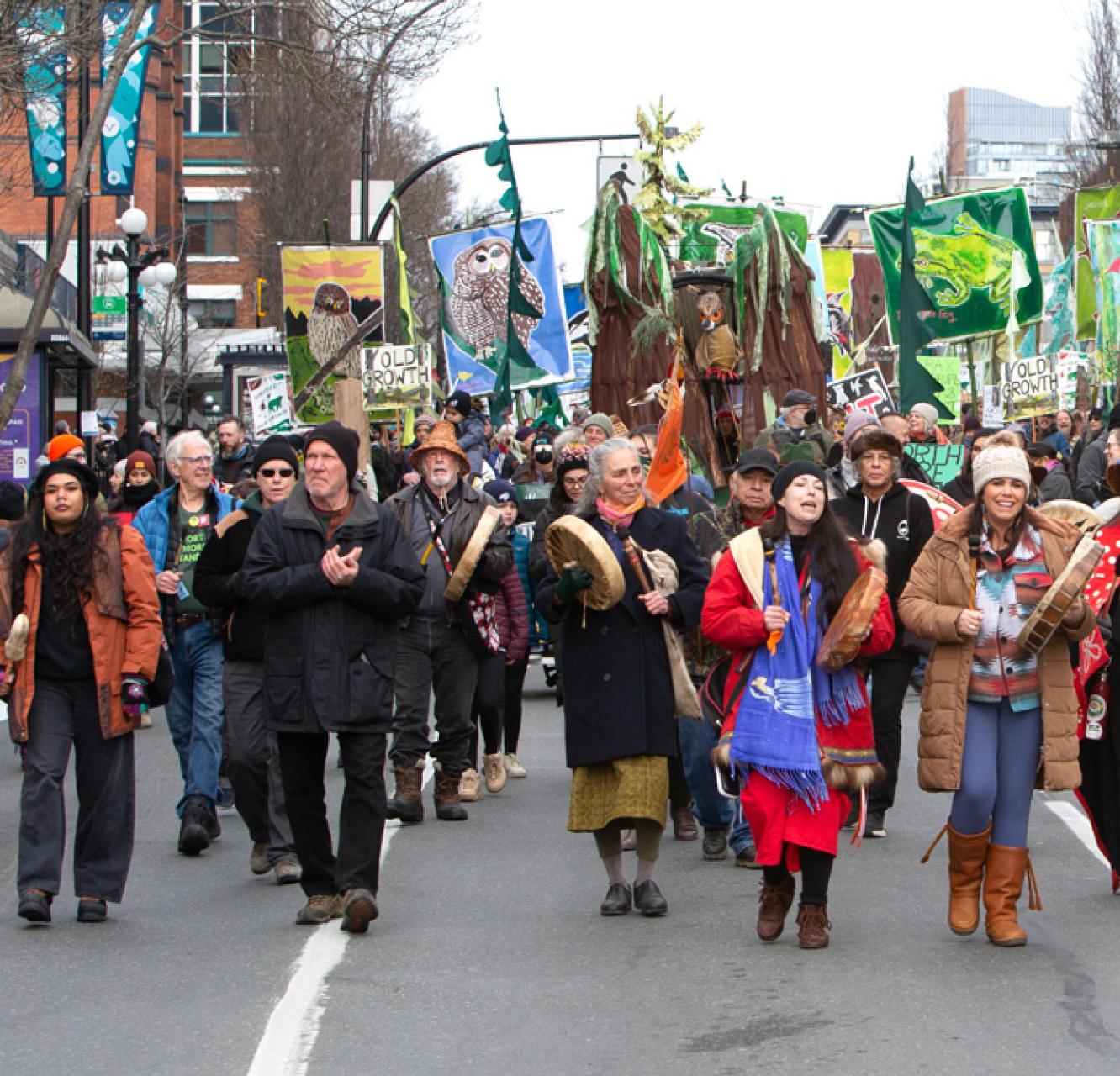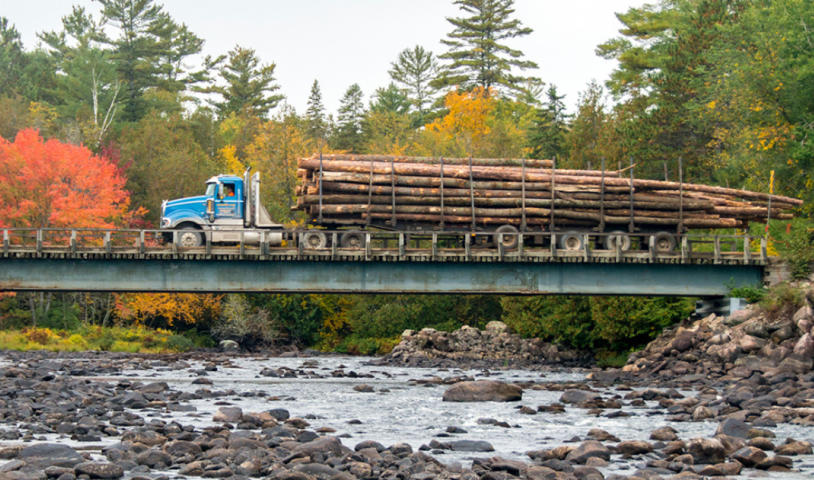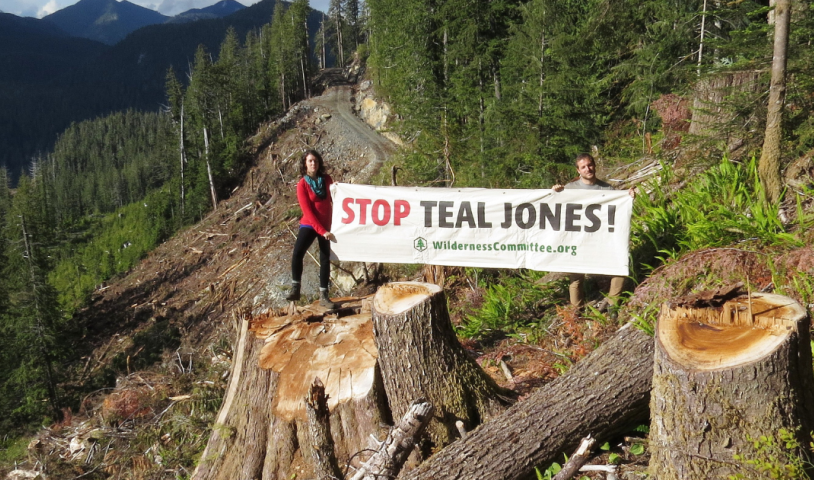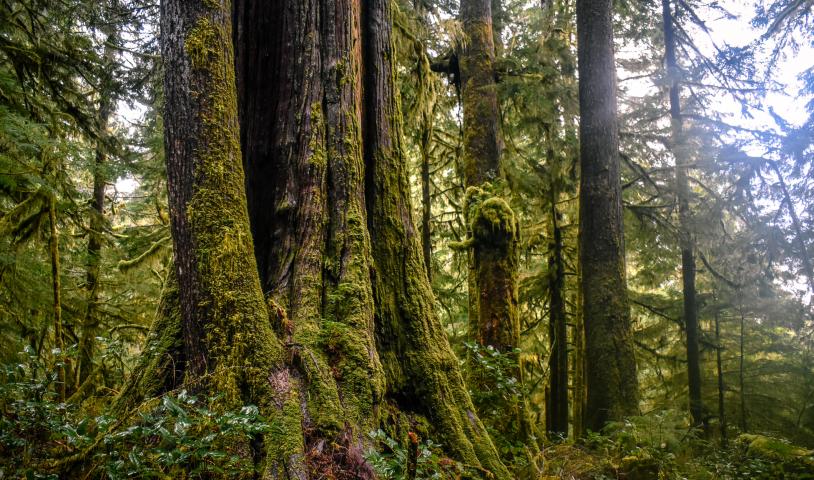Company owned by two Haida among those convicted of destroying prime fish habitat
Friday, October 23, 2015The Haida said they would do things differently, that logging practices would be more sustainable and environmentally friendly than the old days.
That’s not the scenario played out in Masset provincial court as a judge found three forest companies — one owned by two high-profile Haida — guilty of 20 counts each of environmentally destructive logging practices.
Judge Michael Brecknell said the violations by Gwaii Wood Products Ltd., Howe Sound Forest Products Ltd., and I. Crosby Contracting Ltd. occurred adjacent to Highway 16 about 3.5 kilometres northeast of the Village of Port Clements on Graham Island, between June 24 and Oct. 20, 2010.
Logging and road construction resulted in the harmful alteration, destruction or disruption of fish habitat — riparian vegetation, wetlands, three tributaries flowing into the Kumdis Bay Estuary, three tributaries flowing into Mallard Creek and Mallard Creek itself — all in violation of the federal Fisheries Act.
The court heard that Gwaii purchased District Lot 413, private land, on June 25, 2010, for $124,000. Gwaii entered into a log-sales agreement with Howe Sound, which, in turn, reached an agreement with Crosby to do the logging.
The agreements required that environmental laws be respected during the harvesting of 28,000 to 35,000 cubic metres of timber. That’s not how it turned out. On Oct. 19, 2010, a citizen complained of logging damage to Mallard Creek, launching the federal investigation.
Although Gwaii made no presentations at trial it did seek to have the charges against it dropped on the grounds its contract with Howe Sound called for good stewardship. Judge Brecknell disagreed, noting that Gwaii had not shown due diligence over the logging and that it was not good enough to simply contract out its legal responsibilities. The case has been adjourned to Nov. 12 to fix a date for sentencing.
Arnie Bellis is president of Gwaii and former elected vice-president of the Council of the Haida Nation. Gwaii director Frank Collison is also a former vice-president and a member of the Haida Hereditary Chiefs Council.
Bellis said in an interview Friday that he’s as unhappy as anyone with the way events turned out and would like to see those who destroyed the land be ordered by the courts to remediate it. “We’re just as disturbed any anybody … Who wants to wake up in the morning and destroy your own land? That’s not good.”
Howe Sound was incorporated in 1984 but dissolved in 2013. Its directors were Derik Ram Pallan and Bhagat Ram (Tom) Pallan. I. Crosby directors are Irene Minnie Crosby and Rob Pineault. No one appeared at trial for Howe Sound or I. Crosby.
Retired fisheries biologist Al Cowan told the trial it was heartbreaking to see what logging had done to such a productive “fish-factory” habitat. “I have never seen anything like this before. I’ve seen lots of streams, I’ve seen lots of Mallard Creeks, I’ve seen lots of tributaries, but I have not seen such … wetland features in such a small area, with an estuary on it for the fish to move back and forth.”
Another federal fisheries biologist Renny Talbot said it would take centuries for the site to recover. Salmonids including coho salmon and the Dolly Varden char lived in the area.
Joe Foy of the Wilderness Committee said logging has improved under Haida control but that it’s “not perfect” and that’s why it’s important to have strong laws and strong enforcement by federal fisheries. These offences occurred before Prime Minister Stephen Harper’s gutting of the Fisheries Act in 2012.
The convictions come just days after the screening of a documentary Haida Gwaii: On the Edge of the World at the Vancouver International Film Festival. The film is a flattering portrayal of the Haida as people who fought to gain better control over their forests after a history of destructive corporate logging practices.
In 2004, the Supreme Court of Canada clarified key issues relating to the duty to consult and accommodate aboriginal groups affected by land and resource development — specifically, a Haida concern over logging. The court found, in part, that an aboriginal group is not required to first prove its asserted rights or title before government has a duty to consult. The extent of the duty to consult depends upon each particular case.
When the Haida took over ownership of Tree Farm Licence No. 60 in 2012, the rate of cut declined to 340,000 cubic metres from 800,000 cubic metres annually. The Haida also have a tenure agreement with the province for another 120,000 cubic metres per year outside TFL No. 60. About 40 per cent of the harvest is old-growth, sold domestically, while the other 60 per cent is second-growth sent to Prince Rupert and shipped offshore as raw logs.
Across the Haida Gwaii forest district, the total cut has also declined — 2.4 million cubic metres in 1984, 1.8 million in 1994, 1.1 million in 2004 and 840,000 in 2014.




